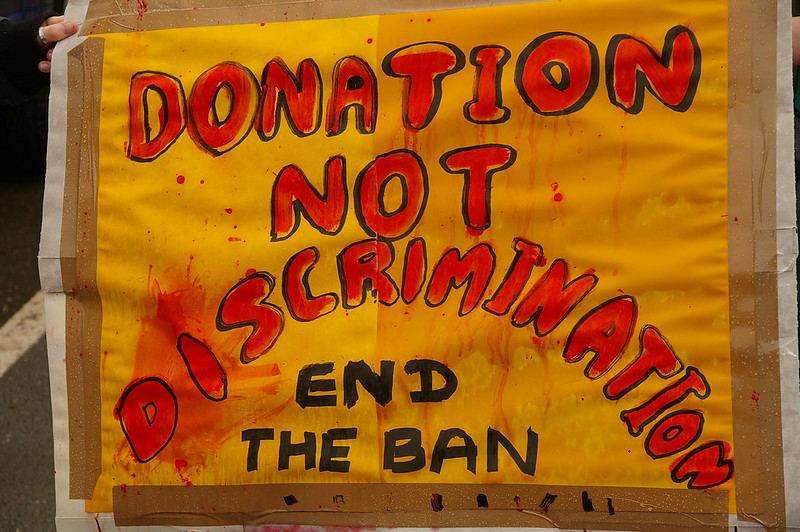
Gay and bisexual men will now be able to donate blood without restrictions
In time for World Blood Donor Day, the NHS has finally changed blood donation rules to become more inclusive. Yesterday, NHS Blood and Transplant announced what they are calling a “landmark change to blood donation eligibility rules” whereby more men who have sex with men will be able to donate blood, platelets and plasma. This means that rather than using questions to potential blood donors that are based upon their sexuality, donors will now be asked about their health, travel and sexual behaviours.
Donors will still have to be vetted – having anal sex will rule you out, as would exposure to an STI – but questions will no longer take gender and sexual preference into account.
FreedomToDonate, a voluntary group in support of inclusive blood donation rules, tweeted an excited response to the decision which comes after years of campaigning. “Today’s the day!” the tweet read. “From today, all potential donors regardless of sexuality will be asked the same questions before donating, in a new, fairer and more inclusive individualised risk-based policy.”
The organisation has been campaigning for more equal blood donation rules since its founder Ed Spibey was not permitted to donate due to his sexuality, as a man who has sex with men. They originally pushed for a reduction in the “deferral period” men have to wait to donate if they have had sex with a man; from 12 months to three. Following this landmark change in 2017, FreedomToDonate continued to advocate for more inclusive rules which do not impose blanket restrictions on groups of people.
One Track Mind spoke to Pablo, 22, from London, who can now donate blood under the new rules. “I welcome the change in policy to start being treated equally as straight people,” he said, “but this should have happened many years ago. I tried to donate blood in the past and was rejected due to this discriminatory policy.”
“Now that the policy has changed, I will try to donate blood as soon as I can and finally be able to help the NHS and patients in need.”
